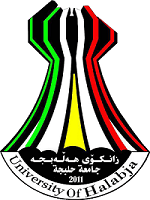Lack of national media and its effects on the Kurdish language
DOI:
https://doi.org/10.32410/huj-10397Keywords:
National Media, Linguistic Deviation, Standard LanguageAbstract
National media is a modern phenomenon in KRI and it has a linkage with Kurdish language and its impact on it, mainly, unification and standardization process. This article is the first one to research it and it is entitled (Lack of national media and its effects on the Kurdish language). In this research, a descriptive approach was adopted. It consists of two chapters and a list of sources and references.
The first chapter: It consists of the theoretical aspect of research, national media and types of media, and then it talks about the relationship between language and media.
Chapter Two: In the beginning we presented information and definition of the language and its levels, and then we explained the effect of the lack of national media on language levels with the models of media institutions. The lack of the national media would have a negative impact on language in general, orthography and grammar. It also would affect standardization process negatively. In the end, we presented the most important findings of the research.
References
ئەکادیمیای کوردی (٢٠١٠) کۆنفرانسی بەرەو ڕێنوسی یەکگرتووی کوردی، هەولێر.
بشر، ک. (١٩٩٤)، علم اللغة الاجتماعي، مدخل، قاهرة.
بەگیخانی، ئ. ح (١٩٩٦) ڕیزبوونی کەرەسەتە، لە زمانی کوردیدا، نامەی ماستەر، هەولێر: زانکۆی سەلاحەدین.
جراد، چ. ئـ. (٢٠١٣) زمان لە ڕاگەیاندنی بینراودا، نامەی ماستەر: زانکۆی سلێمانی.
حسێن، ئـ. ئـ. (٢٠٠١) ئەرکی ئەدڤێربڵ لە فراوانکردنی فریزی کاریدا، نامەی ماستەر، سلێمانی: زانکۆی سلێمانی.
حسێن، ئـ. ئـ. (٢٠٠١) ئەرکی ئەدڤێربڵ لە فراوانکردنی فرێزی کاریدا، نامەی ماستەر، زانکۆی سلێمانی، کۆلێژی زمان.
خورشید، غ. ع. (٢٠١١) زمانی فەرمی بۆ کوردستان. سلێمانی.
ڕەسوڵ، هـ. & عەلی, ک. (٢٠١٩) ڕاگەیاندنی نیشتمانی و بایەخی بۆ هەرێمی کوردستان و ئاستەنگەکانی بەردەم دامەزراندنی، سلێمانی.
سەعید، م. ل. (٢٠١٥) فەرهەنگ و پرۆسەی بەلێکسێمبوون، نامەی ماستەر: زانکۆی سلیمانی.
فتاح، م. م. (٢٠٠٨) بابەتەکانی زمانی ستاندارد، هەولێر: بڵاونەکراوە.
فەتاح، م.م. (٢٠١١) زمانەوانی، هەولێر.
ڤینوگرادوۆڤ، ڤ. ڤ. (١٩٩١) مەسەلەکانی زمانی ئەدەبی و یاسای دروستبوونی و گەشەسەندنی، وەرگێڕانی عەزەدین مستەفا ڕەسووڵ، بغداد.
کالفی، ل. ج. (٢٠١٢) شەڕی زمان و سیاسەتی زمانەوانی، وەرگێڕانی بەهادین جەلال مستەفا، چاپخانەی خانی، هەولێر.
مارف، ئـ. ح. (١٩٨٦) نووسینی کوردی بە ئەلفوبێی عەرەبی.
مەحوی، م. (٢٠١١) بنەماکانی سینتاکسی کوردی، بەرگی یەکەم، سلێمانی.
مەحوی، م. (٢٠١٦) مەنامە بە ستانداردکردنی زمانی کوردیی دروستنوسیین، چاپخانەی ئەندێشە، سلێمانی.
Luginbüh, M. (2015). What is Media Linguistics? Living linguistics.
Hudson, R.A. (1996) Sociolinguistics, second edition, Cambridge University press.
Tunstall, J., 2010. The BBC and UK public service broadcasting. In Reinventing Public Service Communication. Palgrave Macmillan, London.
ئهو كهناڵه تهلهفزيۆنييانهى، كهرهستهو داتاى توێژينهوهكهيان لێوهرگيراوه، ئهمانهن:
تەلەفزيۆنهكانى (NRT، کوردسات نیوز، کوردستان ٢٤، کوردسات، ڕوداو، کەناڵی زێد)
ئهو ڕۆژنامانهى، كهرهستهو داتاى توێژينهوهكهيان لێوهرگيراوه، ئهمانهن:
ڕؤژنامهكانى (کوردستانی نوێ، ژماره (٨١٢٨)، خەبات، ژمارە (٥٩٥٠))
Downloads
Published
Issue
Section
License
Copyright (c) 2021 Sherko Hamaamin Qadir

This work is licensed under a Creative Commons Attribution-NonCommercial-NoDerivatives 4.0 International License.
Authors who publish with this journal agree to the following terms:
- Authors retain copyright and grant the journal right of first publication with the work simultaneously licensed under a Creative Commons Attribution License [CC BY-NC-ND 4.0] that allows others to share the work with an acknowledgment of the work's authorship and initial publication in this journal.
- Authors are able to enter into separate, additional contractual arrangements for the non-exclusive distribution of the journal's published version of the work (e.g., post it to an institutional repository or publish it in a book), with an acknowledgment of its initial publication in this journal.
- Authors are permitted and encouraged to post their work online (e.g., in institutional repositories or on their website) prior to and during the submission process, as it can lead to productive exchanges, as well as earlier and greater citation of published work (See The Effect of Open Access).






